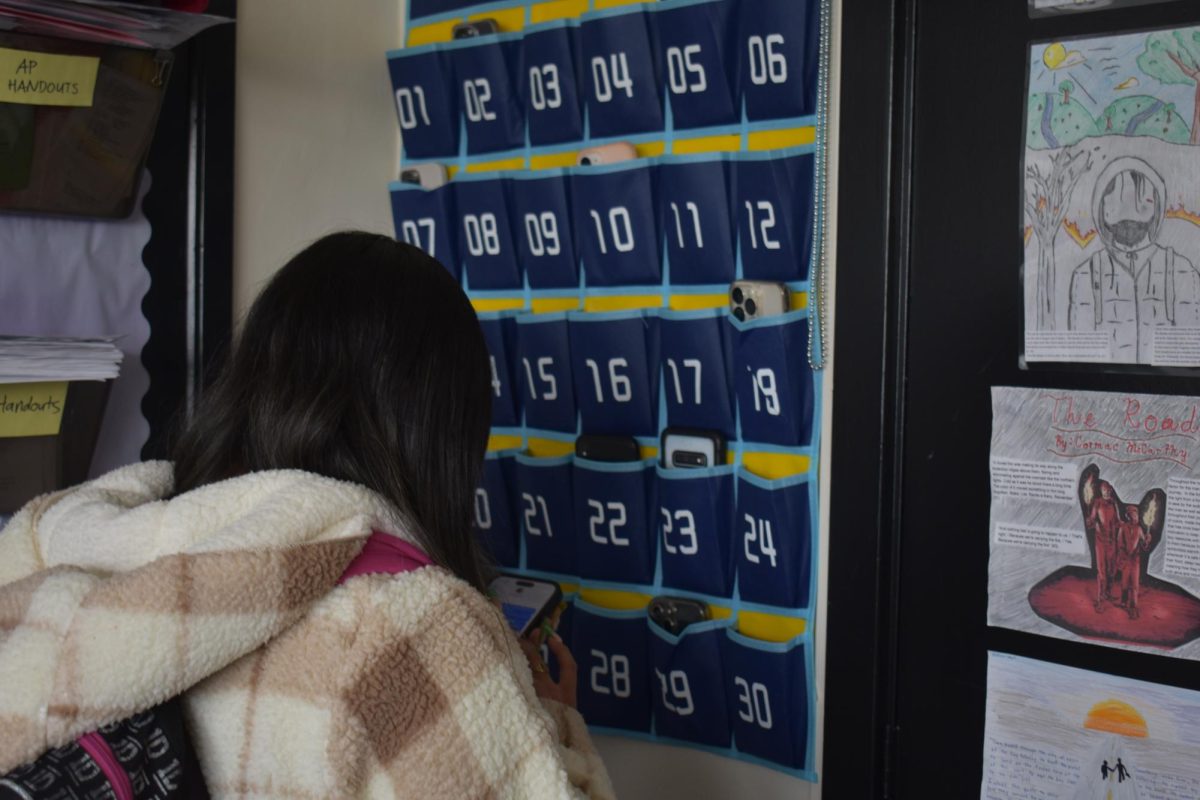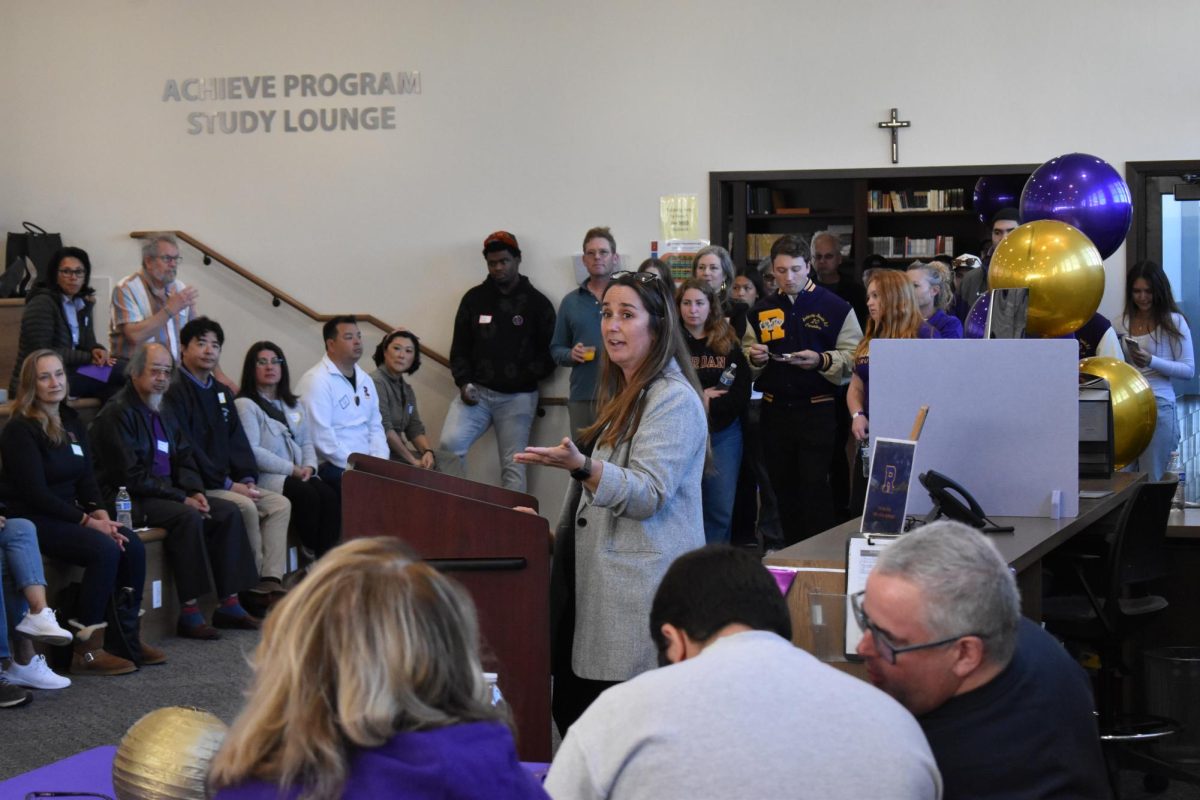Since the beginning of the school year, teachers have been asked to reinforce the cell phone policy. Many are now making students turn in their cellphones in the cell phone pouches at the beginning of class, and if caught with one at any time, the students will be issued a detention.
“We are hoping that students focus and improve academic performance. I think students should be mindful of their teachers and the time spent preparing to teach. By not being on their phones, students show deference to their teachers,” said Juan Zumbado ’98, Dean of Students.
In September, Governor Gavin Newsom signed Assembly Bill 3216, the Phone-Free School Act, to require every school district, charter school and county office of education to adopt a policy limiting or prohibiting the use of smartphones by July 1, 2026.
Despite the intentions for this new policy, there has been mixed opinions on whether or not the rule is reasonable.
Annika Camano ’27 said, “I don’t mind it. I think that in the long run, it teaches students self control on their cell phones.”
According to website Piedmont, cell phones give a temporary dopamine boost that leads to a letdown. So, humans naturally have the desire to check phones more often.
Limiting cell phone usage can lead to benefits such as less anxiety, stress, deeper connections with others, and a healthier body.
Cell devices provide a way to communicate with friends and family, especially in dangerous situations. Direct communication can help people notify anyone if there is ever an emergency.
Isaiah Mateo ’26 said, “A sense of fear is instilled in the students’ minds regarding recent situations that have occurred. Having a phone nearby to alert authorities or family members about situations creates a sense of security for students and their loved ones.”
This stricter phone policy can have many outcomes that may be seen as the school year progresses.






